Just two more photos from last weekend in Cincinnati, though to be precise, I took both from Kentucky. I love repurposed obsolete infrastructure, like the New York Highline and the coming Bloomingdale Trail. In Cincinnati, they have the Purple People Bridge, which one imagines used to rain soot and cinders down on what has become, since the bridge was built in 1999, a beautiful riverfront.
Here's the bridge from the Newport, Ky., side:
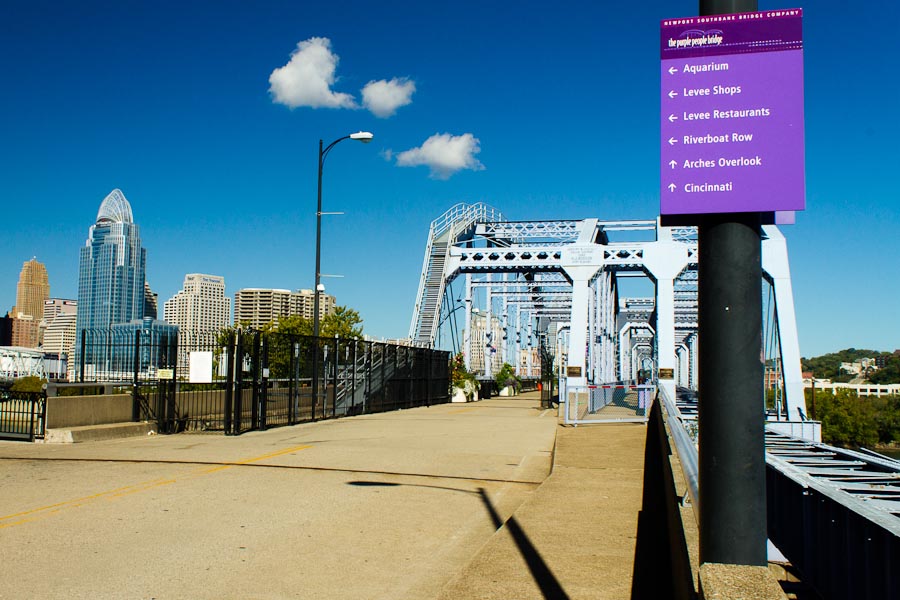
Closer to Ohio—Kentucky owns the entire river, almost up to the bank—you get this view:

I'll have to go back there, as long as I can explore the city and not the depressing exurbs to the north.
Nate Silver finds no consistent bias in the history of presidential polling:
In the 10 presidential elections since 1972, there have been five years (1976, 1980, 1992, 1996 and 2004) in which the national presidential polls overestimated the standing of the Democratic candidate. However, there were also four years (1972, 1984, 1988 and 2000) in which they overestimated the standing of the Republican. Finally, there was 2008, when the average of likely voter polls showed Mr. Obama winning by 7.3 percentage points, his exact margin of victory over John McCain, to the decimal place.
In all but three years, the partisan bias in the polls was small, with the polling average coming within 1.5 percentage points of the actual result. (I use the term “bias” in a statistical sense, meaning simply that the results tended to miss toward one direction.)
On the whole, it is reasonably impressive how unbiased the polls have been. In both presidential and Senate races, the bias has been less than a full percentage point over the long run, and it has run in opposite directions.
That does not mean the pollsters will necessarily get this particular election right. Years like 1980 suggest that there are sometimes errors in the polls that are much larger than can be explained through sampling error alone. The probability estimates you see attached to the FiveThirtyEight forecasts are based on how the polls have performed historically in practice, and not how well they claim to do in theory.
So in 2012, as Krugman puts it, "the facts have a well-known liberal bias."
Finally, by the end of 2014 Chicago will have one transit card to rule them all, called Ventra:
The CTA and the Regional Transportation Authority are leading an effort to create an open fare system in which bank-issued cards and universal transit cards will be accepted on CTA, Pace and Metra.
The RTA system faces a 2015 deadline to fully implement an integrated fare system. Part of the challenge is including Metra, which is slowly modernizing its antiquated fare-collection system that still involves conductors punching paper tickets and passes.
When Ventra begins next summer, CTA and Pace will continue to offer special fares for students and senior citizens and various-priced fare products, like 30-day and 7-day passes, and will still accept cash on buses.
 The official site explains:
The official site explains:
Here’s how it works:
Ventra Card: This contactless card works like the current Chicago Card Plus, only better! Just tap on a card reader for quick and easy boarding on trains and buses. Plus, you can manage your account and balance at Ventra vending machines in CTA stations, numerous retail locations, online or over the phone.
Ventra Ticket: These contactless tickets work just like the current magnetic stripe cards but are even easier to use. Just tap and ride! Choose from a single-ride or 1-day Ventra ticket.
Bankcard: Ventra introduces another way to pay for transit fares by using the bankcard already in your wallet. Simply register your personal bank-issued contactless credit or debit card, add transit passes and value or pay as you go for rides.
And someday, they hope, they'll have a mobile phone option.
Other transit systems, including those in San Francisco and London, have had similar systems for a while.
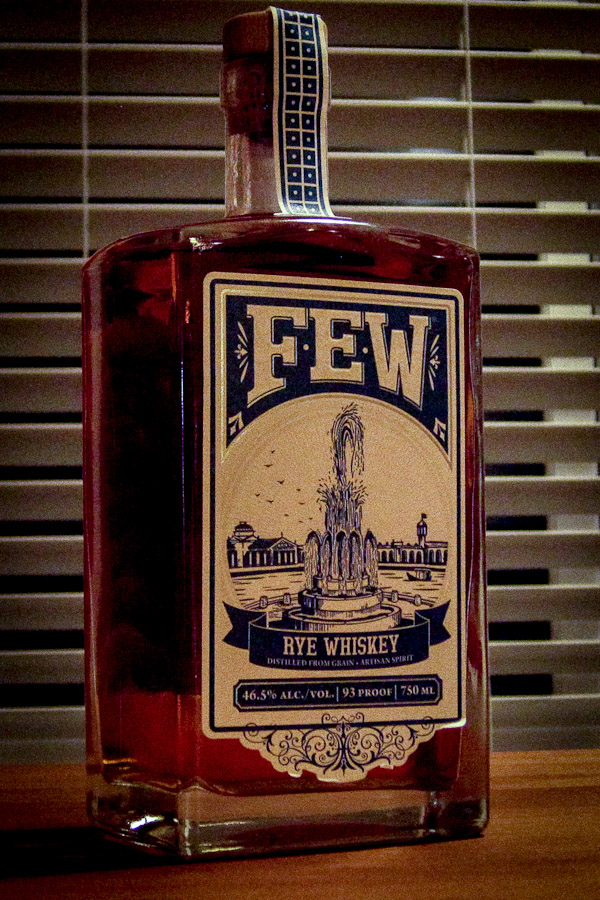 A couple weeks ago, I finally tasted whisky from the FEW Distillery in Evanston, Ill. FEW is named for Frances Elizabeth Willard, who, in the mid-19th century, ran the Women's Christian Temperance Union and later bequeathed her house to the organization.
A couple weeks ago, I finally tasted whisky from the FEW Distillery in Evanston, Ill. FEW is named for Frances Elizabeth Willard, who, in the mid-19th century, ran the Women's Christian Temperance Union and later bequeathed her house to the organization.
In other words, this is a distillery named after one of the leading advocates for prohibition, headquartered in a city that was dry for more than a century.
Also, FEW's master distiller, Paul Hletko, is one of the first people I met in law school. Mazel tov, Paul: you've made a great collection of spirits.
Monday's SSD crash took an annoying, but reasonable, amount of time to fix. Otherwise I would have posted this photo of Great American Ball Park yesterday:
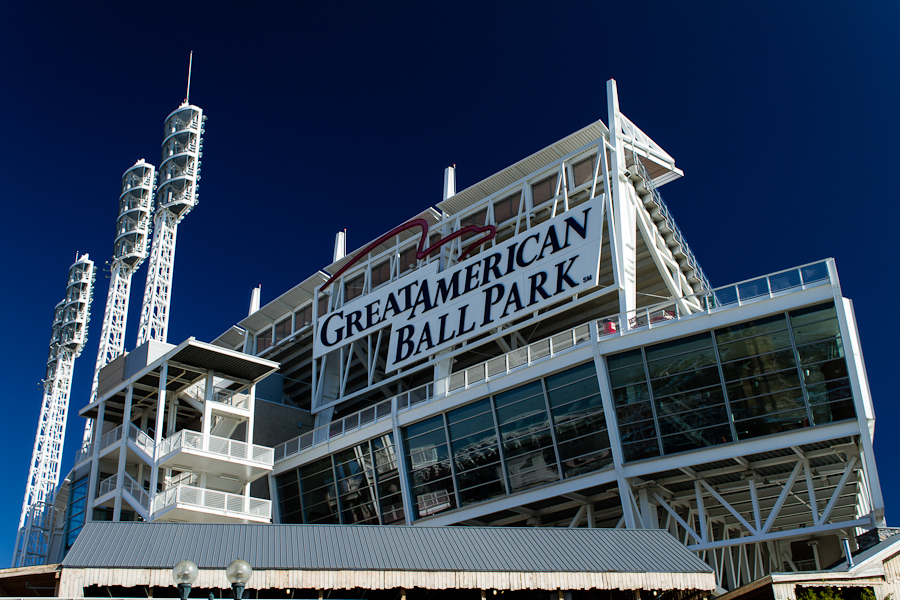
And, of course, an obligatory photo of Cincinnati's most recognized landmark:
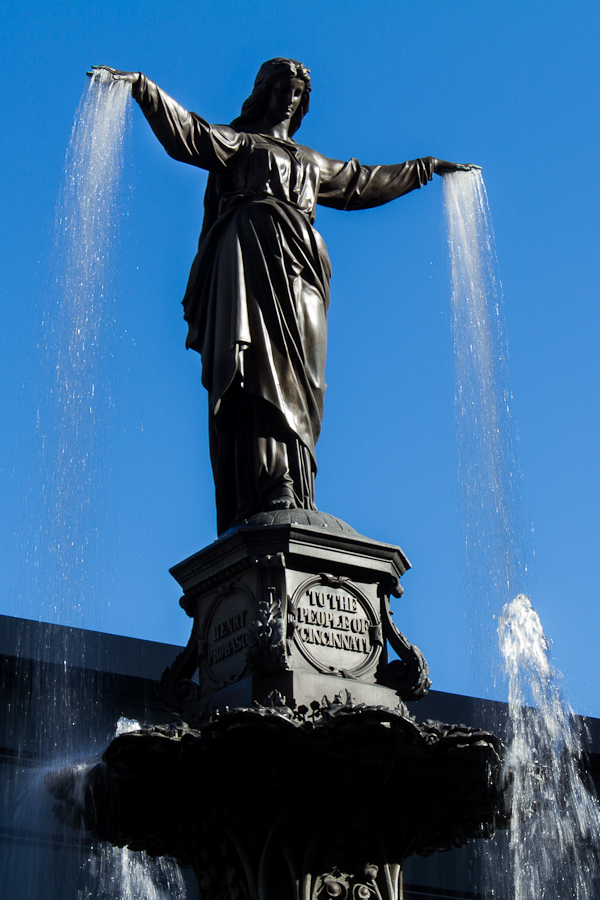
I'll have a couple more in days to come.
Last night, while watching the Seahawks-Packers game (and rooting for the Seahawks for the same reason I wore a Giants hat to a Reds game), I saw the end of the rule of law.
For three weeks, the National Football League referees have been locked out in a pensions dispute. The NFL has called in refs from the lower rungs of college sports, causing, to put it politely, controversy. Games have gotten longer by about 15 minutes as the replacement refs double-check the rules and the replays, causing players to test boundaries and fans to scream blue murder.
Last night's game ended with a disputed call in its final seconds—disputed, in fact, by the two line judges standing a short meter from the thing they were disputing. Touchdown? Stop the clock? Pass interference? No one knew. On TV, it clearly looked like an interception, and a Packers win. The head ref for the game called touchdown, and under review, let the call stand.
If almost no one trusted the replacement refs before, after last night, their authority has completely vanished.
The owners have little incentive to end the labor dispute, and strong incentive to stand firm. They're thinking ahead to negotiations with players; appearing to cave in their dispute with the refs might look bad. And fans keep watching, for fifteen extra minutes each week, so the league has an actual financial benefit.
Without trusted referees, though, games will get nastier, messier, and more disputed. Remember the 1994 World Series? Superbowl XLVII may look a lot like it.
My laptop's solid-state drive died this afternoon. It had a long, long life (23 months—almost double what they usually get). I am thankful to the departed SSD for that, and:
- for dying after the client presentation, not before;
- for dying on the first day of a three-week project, not the last; and
- for living 23 months, which is about as spectacular as a dog living 23 years.
I am now rebuilding my laptop on a larger but slightly slower SSD, which I hope lasts nearly as long.
Yesterday I posted a shot of the Cincinnati Reds clinching the National League Central Division title. Here's the whole park, from the cheap seats:

And here's a little nerd humor for you. Why can't anyone hit a home run over Cincinnati's center-field wall? Because no one can find it:

More Cincinnati photos after my 1pm meeting...
Yesterday afternoon, I saw this happen:
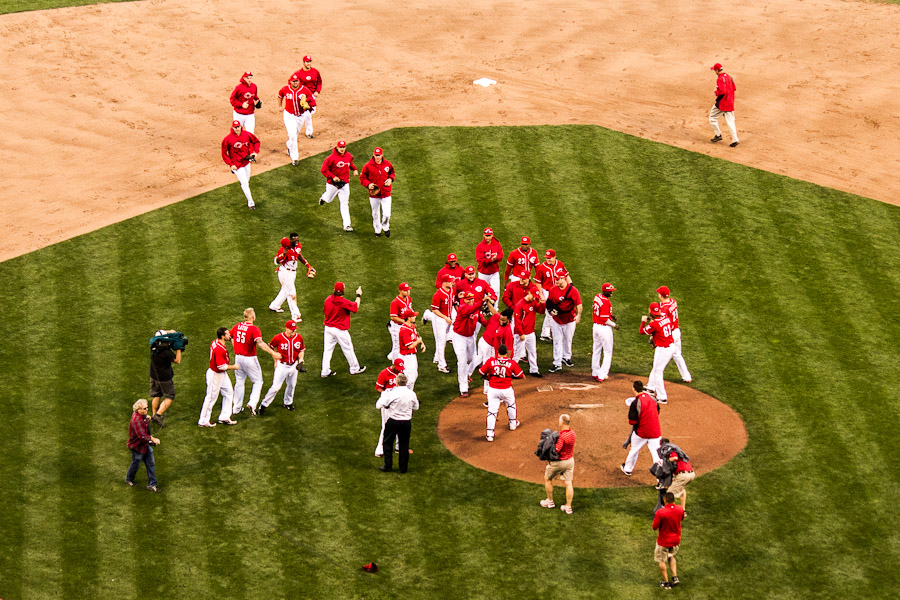
That's the Cincinnati Reds just after they beat Los Angeles to become the National League Central Division champions this year. And because they beat L.A., they helped San Francisco clinch the West, making it an all-around fun afternoon. (N.B.: I wore a Giants hat to the game.)
More Cincinnati and Great American Ball Park photos when I get back to Chicago.
It's a beautiful afternoon for a ballgame, at least here in Cincinnati, where I hope to see the Reds become the first team this season to clinch its division outright. I'll actually be wearing a Giants hat, as a Cincinnati win against the Dodgers today moves San Francisco's magic number to 1—and I want to see them in the playoffs.
Anyway, it's 21°C, partly cloudy, and Oktoberfest is right outside my hotel room. I am optimistic about this trip to the 24th park in the Geas.
Update: O noes! I missed the world's largest chicken dance!!!11!1